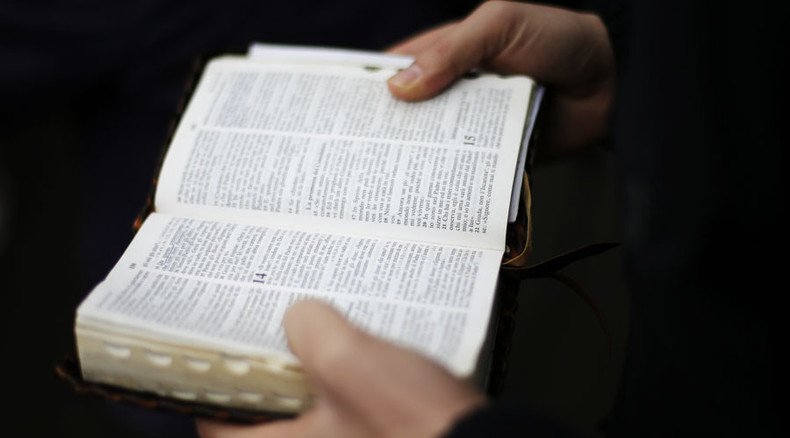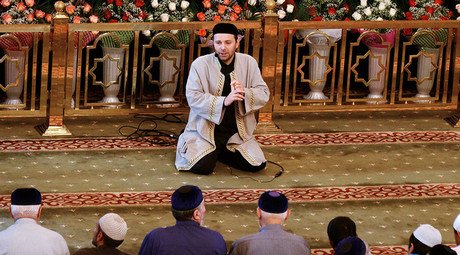It’s not in the Bible, nor in Koran: Putin signs law exempting holy books from extremism checks

Russian President Vladimir Putin has signed a law which bans the recognition of holy books as extremist materials following a scandalous law suit in the summer. The Bible, Koran, Tanakh and Kangyur have been included in the check-proof list.
“The Bible, the Koran, the Tanakh and the Kangyur… their contents and quotations cannot be recognized as extremist materials,” the amended national law says. The books contain holy texts for Russia’s four main religions: Christianity, Islam, Judaism and Buddhism.
The bill seeking an amendment to a federal law, ‘On Countering Extremism’, was tabled by Putin himself on October 14 and later it was adopted by both chambers of parliament.
The move is a response to an August scandal during which a judge from Yuzhno-Sakhalinsk, a city in the Far East, recognized the book Prayer to God: Its Meaning and Place in Islam as extremist, citing in particular Koran quotes used within: “Thee (alone) we worship; Thee (alone) we ask for help” (Al-Fatiha) and “Call not upon any one with Allah” (Al-Jinn).
The decision provoked a public outcry among Russian Muslims. Ramzan Kadyrov, President of the Chechen Republic, called the judge and the prosecutors “shaitans” (devils), provocateurs and appealed in court.
Yunus-Bek Yevkurov, head of Ingushetia, also condemned the verdict of the court.
“The law in fact takes the side of common sense, age-old wisdom of peoples, given in these books,” Frants Klintsevich, member of the Council of Federations, upper chamber of the Russian parliament, said as cited by Vedomosti newspaper.
“With this step once again we are pointing out equality of religions as well as the state’s responsibility to respect for the free choice of religious preferences of its citizens,” he added.
Russia, with its population of over 142 million, is officially a secular state. A majority – or 74 percent, according Levada-Center statistics put together in 2012 – count themselves as Orthodox Christians. Islam is Russia’s second most popular religion with about 7 percent of respondents having identified it as their faith in the poll.













